Greatest chess players of all time?
In Animal Farm, George Orwell has written an immortal sentence:
All animals are equal, but some animals are more equal than others
In the history of chess, there were numerous strong players who became World Champions. Although all World Champion were the strongest players on the planet at one point a time, it is safe to say some World Champions were more strong than others.
Since we humans are obsessed with absolutes and records, we enjoy using the term “greatest ever.” We determine GOATS in sports, in science, in history, in cartoons, in computer games, everywhere. Although determining the GOAT is very thankless, if not an impossible task, we still do it. Comparing players from different eras, comparing their competition, and trying to evaluate their results is an inherent part of human nature.
Chess is no exception; at any moment in time and Internet, there is a heated discussion about who the greatest player in the World is. Every chess player likes to add his 2 percents regarding this matter.
Yours truly is not an exception. Very recently I answered some GOAT related questions on Quora. Inspired by this, I realized this is a great topic and have decided to write a post expressing my own opinion. This is how my own personal list of five greatest players in the history of chess came to be. I will present it in this post and explain the reasons why I consider these five players the greatest in the history of our game.

The parameters?
When I am evaluating the greatness of a chess player (or any athlete for that matter), I usually try to take the following into account:
Tournament and match record
The most obvious statistical evidence of greatness. The number of trophies/golds/first places is a pretty reliable indicator of someone’s skill. It is also correlated with the longevity mentioned below.
Domination over contemporaries
Someone might wonder how on earth is it possible to win tournaments/matches without domination over contemporaries. But it is possible. In chess, it is possible to avoid matches. And tournaments outcome doesn’t revolve around the outcome of a single game.
For instance, it is well known how Alekhine avoided playing in the same tournaments as Capablanca. Or how he never granted him the opportunity for a return match. How he prefers to play Efim Bogoljubow twice instead.
Or, if you want a tennis similee, Roger Federer was never able to demonstrate his domination over Djoković or Nadal in H2H matches. For me, until 2017, it was questionable whether he could have been regarded as the greatest ever.
The individual scores against rivals were not in his favour. Only after wonders he did in 2017 was he able to firmly clinch the GOAT title in my opinion.
Which kinda brings me to the last point.
Longevity
Quite simply, it is one thing to get to the top, quite other to remain there for quite some time. The admirable quality of all great champions is their longevity, the number of years they remained on the top. Winning the battle against time is the hardest battle to win in my opinion.
The list of my personal top five greatest chess players, based on the factors examined above, is given in the remainder of the answer.
Disclaimer: Before you start commenting something along the: “OMG, retard, you didn’t include my favourite XY player.” lines, please bear in mind that this list is my own and is therefore highly subjective. Debating about the GOAT title and comparing players from different eras is always very difficult and prone to error. I look forward to every (RESPECTABLE) comment expressing a different opinion.
The players?
1) Garry Kasparov
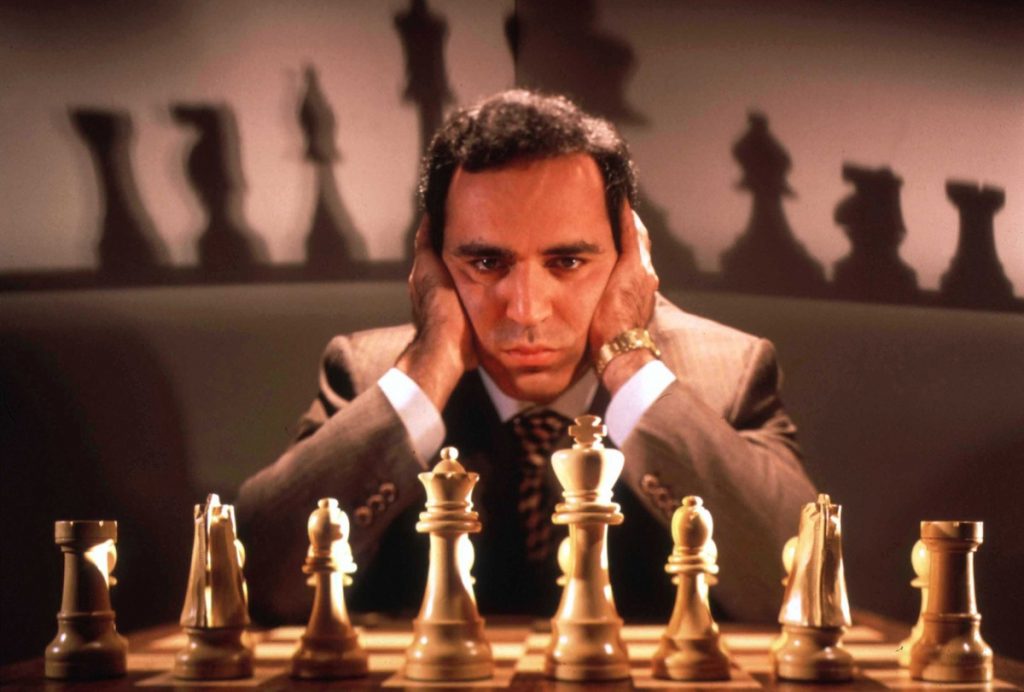
The chess world more or less unanimously agrees that Kasparov is the greatest player who ever lived.
His accomplishments in all three categories mentioned above are unparalleled. He was the most dominating force in chess for almost 20 years, an undisputed number one who broke numerous records. Were it not for a “fluke” against Kramnik, his career would remain virtually without a major setback.
- Tournament and match record
When Kasparov played in a tournament, he was only interested in the first place.
In the span between 1981 and 1990, he took the first play in 15 consecutive tournaments. Don’t forget that during that period he also played 5 matches against Karpov.
From 1998 to 2001 he won 10 consecutive super tournaments – Linares (1999, 2000, 2001, 2002), Wijk Aan Zee (1999, 2000, 2001), Sarajevo (1999, 2000) and Astana (2001). He won Linares a record 8 times.
In the Olympiads, he has won 5 individual gold medals, and Russia won the Chess Olympiad all 8 times when Kasparov played for the team.
His match record is also exceptional. He only lost the afore-mentioned match against Kramnik. Every single World Championship match or friendly match he has ever played, he managed to win (against human opposition, we don’t count his matches against Deep Blue while evaluating his career).
I could probably go on and on and mention all the lesser tournaments, but I think this is enough to illustrate what a fierce competitor Kasparov was.
- Domination over contemporaries
Kasparov’s results are in general more impressive than the results of his contemporaries. Not only that; during his career, he battled both with Karpov’s generation and the new generation of the 90s, rather successfully.
Sure, there were periods in which rivals achieved superior results. For instance, Anand’s tournament record in 1998 is far more impressive than Kasparov’s. Also, 2000 can’t be considered as a good year for him, since he lost his title.
Also, there are some players who have a positive plus score against Kasparov. Kramnik has a lifetime +5–4 record in terms of decisive games, Gulko +3–1, Lautier +2–1, etc. Still, none of these players was able to consistently achieve superior results than Kasparov (perhaps Kramnik, with his series in 1995 and 1996 at least came close, but failed in qualification matches for the World Championship).
Also, the majority of other players have a dismal score against Kasparov. His +15–0 against Shirov is well known. Anand fared only slightly better – +16–4, Timman also got destroyed: +21–2.
- Longevity
There is not much to say. Kasparov was the nr.1 rated player in the World for two decades. His domination started in 1985 and ended virtually with his retirement and Linares 2005 victory.
When he retired, the chess world mourned, as he wasn’t that old, but still had an impressive 20 years full of success behind himself.
2) Anatoly Karpov
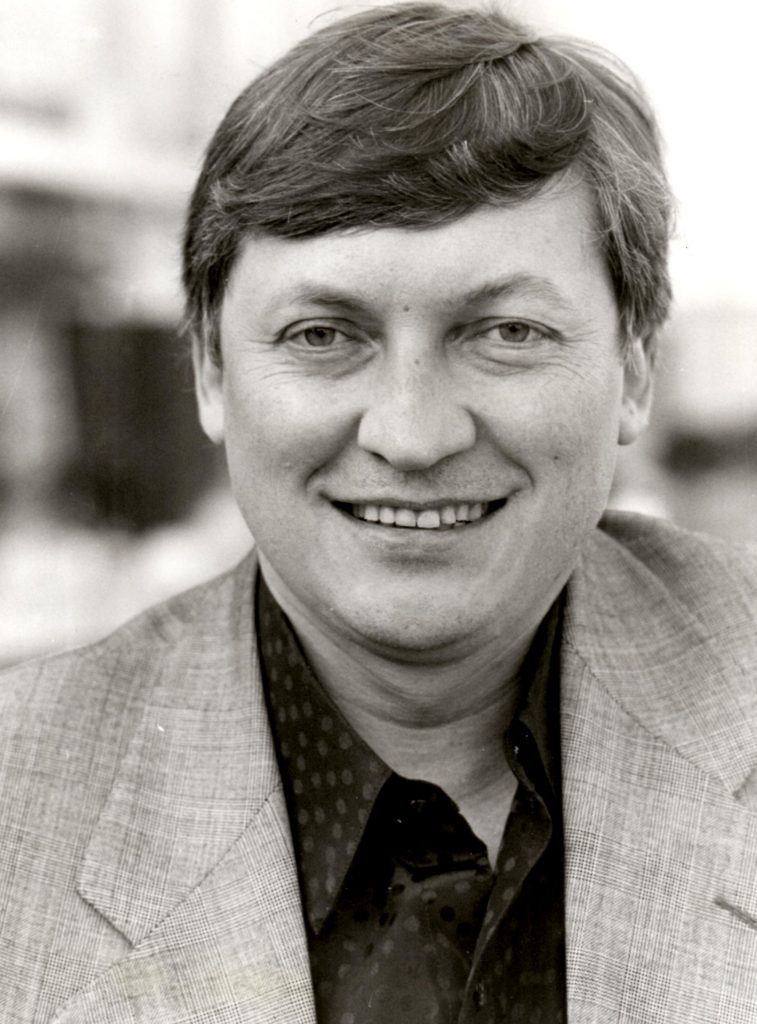
Placing Karpov on the number two of this list might come as a surprise to some people. But I think that Karpov is one of the most underestimated champions, mainly because he spent a big part of his career in Kasparov’s shadow.
Also, the fact that he represented the icon of the USSR wasn’t quite productive for his popularity. It is well known how he reported directly to Brezhnev while the latter was alive. Karpov the ideal Soviet wasn’t someone West could love so easily, in contrast to the “rebel” Kasparov.
Still, before Kasparov appeared Karpov was, without any doubt, the best player in the World. And even during Kasparov’s reign, he shone on numerous occasions. I will do my best to bring his brightest moments under the spotlight.
- Tournament and match record
Karpov won his World Championship title without the final match – Fischer refused to play and resigned the title in latter’s favour. Because he felt he had been handed the title, Karpov wanted to prove he is worthy of it. In the next decade, he entered almost every major tournament and won the majority of them.
Before Kasparov set his record mentioned above, most consecutive tournament victories were achieved precisely by Karpov in the 1975–1985 period – nine.
In Olympiads, USSR won six team golds whenever Karpov was playing. His lifetime Olympiad record is very impressive – he lost only two games out of 68.
His match record is well known – if his opponent wasn’t the other K, Karpov would win. And matches against Kasparov were all extremely close. Virtually all of them, except the last one in Lyon, were decided in the last couple of games. Kasparov was better, but the margin wasn’t as big as 5–0 overall match score suggests.
In the early 90s, Karpov gained a new life after Kasparov departed from FIDE. Karpov won the FIDE World Championship title in 1993 and cling to it till 1999 when Fide decided to organize the World Championship in form of knockout matches.
His tournament performance in Linares 1994, where he scored an outstanding 11/13 is regarded as one of the most brilliant tournament performances in the history of chess.
I can’t find the exact quote, but somewhere in My Great Predecessors, Part Five Kasparov wrote that Karpov liked to count his tournament victories and has a record number of them. Don’t take me for the word, but I think the number was well over 100.
Scary.
- Domination over contemporaries
This quote from Wikipedia illustrates his domination over his rivals during the peak of his career:
To illustrate Karpov’s dominance over his peers as champion, his score was +11−2=20 versus Spassky, +5=12 versus Röbert Hübner, +6−1=16 versus Ulf Andersson, +3−1=10 versus Vassily Smyslov, +1=16 versus Mikhail Tal, +10−2=13 versus Ljubomir Ljubojević.
His overall record against Kasparov is +21–28=121, but Kasparov scored a number of victories in the late 90s and early 2000s when Karpov was far from his strongest days.
- Longevity
To conclude, Karpov was the clear number one between 1975–1985, clear number two between 1985–1995 and the FIDE World Champion between 1993–1998. A successful career that lasted almost for three decades. Simply impressive.
3) Magnus Carlsen
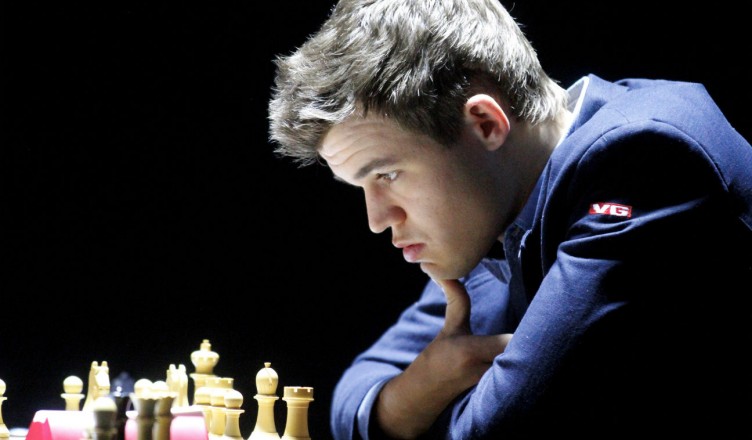
Deciding between Magnus and Karpov was arguably the biggest decision I had to make. I think I wouldn’t make a gross error if I put Magnus on the number two. Still, on the basis of longevity and the fact that his career is not over yet, I consider him inferior to Karpov in terms of accomplishments.
- Tournament and match record
Carlsen has been an exceptional tournament player for quite some time. His first major tournament victory came back in 2008 – a joint win by Aronian in Corus Chess Tournament 2008. During 2008 and 2009 he played with “mixed success”, winning some tournaments and coming second or worse in others.
I think that only after starting his collaboration with Kasparov did he become clearly the best player in the World. He ended the year with one of the best tournament performances in history – Nanjing chess 2009 and also won the London Chess Classics. I think that these two results ensured him the Chess Oscar for the first time
Starting from 2010, all the way up to 2016, he was clearly the best tournament player. There were some ups and downs, but he won the clear first in the most of the tournaments he played. Checking his tournament record on chess games or his Wikipedia profile is sufficient to give that evaluation.
And you have to bear in mind that Carlsen plays more tournaments annually than his predecessors.
The only thing that somehow eluded him for the longer period of time than it should have was the World Championship title. Due to his inexperience in 2007 and refusal to play in 2010 cycle, he captured his title only in 2013, after winning the Candidates tournament in dramatic fashion. His match record has been perfect ever since.
- Domination over contemporaries
I think that this list of Carlsen’s h2h score against selected 2700+ Grandmasters says it all.
Out of 43 names on the list, only Nepomniachtchi, Svidler and Rapport have a positive score against Carlsen. Apart from winning chess tournaments, he manages to own everyone’s number in individual encounters as well. And that is only classical chess, we won’t even count massacres he does in blitz and rapid, like those against Ding Liren or Wesley So very recently.
- Longevity
The main reason I am reluctant to place Magnus higher on the list. He is clearly the best for 7 years now. I still want to see how will the remainder of his career unfold. He definitely has potential to surpass Kasparov’s achievements, but it is hard to tell whether it will happen.
4) Viswanathan Anand
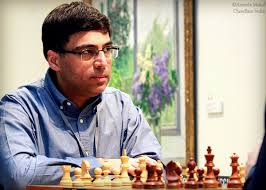
Okay, placing Tiger from Madras on this list might come as a surprise to some people. But I think people often overlook or underestimate modern players in favour of the old masters.
Viswanathan Anand is a wonderful player. He has been very constant on the top, has been an undisputed World Champion for 5 years and FIDE World Champion for an even longer period of time. True, he was never the undisputed number one, but his career is long and rich and we will try to examine its key moments below.
- Tournament record
Anand appeared on the international stage in the early 1990s and won tournaments in Reggio Emilia and Alekhine Memorial in Moscow in 1992. Very soon he started competing against the “big boys” with mixed success. He did win the tournaments in Dortmund in 1996 and Dos Hermanas in 1997. However, he was always in Kasparov’s shadow and always had trouble playing against him, especially after his defeat in World Championship Match 1995.
In 1998, though, he was clearly the best and deserved his second Chess Oscar (out of 6 he won – only Kasparov and Karpov have more, although first Oscar was awarded only in 1967). From that year onward, he was always, “there somewhere”, either at the very top or very close to it. He remained “in form” until the end of 2008 – which coincided with the beginning of Carlsen era.
After Linares 2008, he would go on a five-year drought, that would end only with a victory in Grenke Chess Classics 2013. Since then, especially after losing the title to Carlsen in a match, Anand has played much more successfully, It would appear that
Anand holds one unique record, though. Anand is the only player to have won the super tournament at Wijk aan Zee (Corus from 1989-2010) five times.
He is the first player to have achieved victories in each of the three big chess super tournaments: Corus/Wijk aan Zee (1989, 1998, 2003, 2004, 2006), Linares (1998, 2007, 2008), Dortmund (1996, 2000, 2004).
All in all, it can be concluded that Vishy’s career does include numerous tournament victories and is worthy of a World Champion.
- Domination over contemporaries
One of the main reasons Anand is not higher on this list is this category. During most of his career, there was a rival who achieved more impressive results. In the 1990–2002 (2003) period, it was Kasparov; from 2009 onwards it was Magnus Carlsen.
Only in the 2003–2008 period was he a tad ahead of his rivals. He demonstrated his superiority against both Topalov and Kramnik
But don’t forget, the 1990s and 2000s were a period of an abundance of strong chess players. Never before in history was the competition so fierce. In order to really really stand apart, you either had to have Kasparov’s dedication to work, or Magnus’ special talent and persistence. Yet, that doesn’t mean we should belittle the achievements of the wonderful Indian player.
- Longevity
Anand’s career also spans over more than three decades. It is clear that it isn’t as successful as Karpov’s and that Magnus has achieved more in less time. But I think that we shouldn’t underestimate Anand’s tournament victories, his match victories against Topalov and Kramnik in particular, but also Gelfand and his triumphs in FIDE World Championships in the early 2000s.
5) Emmanuel Lasker
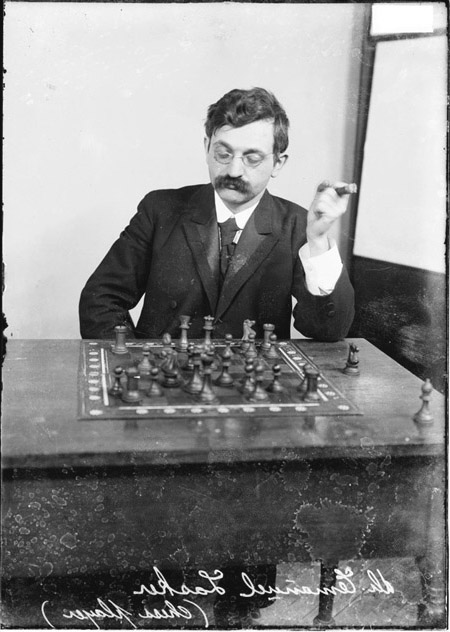
I will be honest, I really struggled with the choice of the final man on this list. Initially, my intention was to go with the Alekhine. It is doubtful whether I would have made a serious mistake. Because in the terms of the abuse of the powers of the World Champion, both players arranged the World Championship matches as they pleased.
Still, since Alekhine avoided all meetings with his greatest rival, Jose Raul Capablanca (as mentioned above) I simply couldn’t write his name here with clear consciousness.
I’ve decided for Emmanuel Lasker mainly because of his psychological strength. He was always able to win important games in his life. He relied heavily on psychology in chess, which made him a highly dangerous and skilled match player.
I regret heavily that due to the World War I, Lasker couldn’t display his true strength against Capablanca in the 1921 match. I think that a match between these two giants at the height of their powers would be a battle of epic proportions.
But I am digressing. Let’s look at Lasker’s accomplishments on the basis of the three categories mentioned above.
- Tournament and match record
Emmanuel Lasker was an exceptional tournament player. Out of the eight major tournaments, he played while he was a champion, he won six of them. He also won first prize in New York Chess tournament in 1924 and second prize in Moscow Chess Tournament in 1925, both times finishing ahead of his nemesis, Capablanca.
- Domination over contemporaries
Lasker’s match record was even more impressive. Matches were much more important back in the day than they are today. Although Lasker sometimes handpicked his match opponents, he did demonstrate his superiority quite convincingly:
+10–5 against Steinitz in 1894
+10–2 against Steinitz in 1896
+8–0 against Marshall in 1907
+8–3 against Tarrasch in 1908
+18–3 in three matches against Janowsky
The only difficult match for Lasker was his encounter with Schlechter in 1910.
Still, together with his tournament results, his match record left little doubt about who the best player on the planet was.
- Longevity
27 years as a champion. The World Record that will never be broken. Playing successfully even in his 50s, and returning from his retirement in his 60s. If longevity had a name, it would be Emmanuel Lasker.
B-b-b-b-u-t, what about Fischer?
Now, I am well aware omitting Robert James Fischer from the top five is likely to piss many people off. Still, I will make a bold claim here:
Robert James Fischer is not the best player in the history of chess. He is not even among the top five best players in the history in my opinion.

There is no denying that Fischer was extremely successful during his career in terms of tournament and matches wins. There is no denying that he was clearly the best player in the world who dominated his contemporaries at a certain moment in time.
But I think that Fischer’s career and reign on the top lasted too short for him to be regarded as the greatest player ever. Fischer was only dominating tournaments in the 1967 – 1970 period. But you have to keep in mind that there were fewer tournaments than today; in the span of 3 years, he won 8 tournaments and withdrew from the Interzonal in Sousse in 1967. Nowadays, modern chess players play 8 tournaments in a single year.
Yes, many people will mention his phenomenal results in national championships (who doesn’t remember the legendary 11/11 in the 1963/1964 US Championship). But I think we all agree that the level of the competition in US Championships was considerably lower. In my book, a tournament won against the world elite is much more relevant in the GOAT race.
I agree someone might object to this and claim that Lasker also played only in eight tournaments in 27 years, and he might have some point. But I think it is important to have the context of a time in mind. Lasker simply didn’t have the opportunity to play in more tournaments.
Back in the day, there was no such thing as a chess professional. In order to achieve financial stability, players had to have another occupation. Lasker was no exception. In those tournaments he did play, he played exceptionally.
Also, it is well known that Fischer was a dominating force in matches. But apart from the 1992 tourist match against Spassky, he was really dominating his contemporaries only in the matches of the 1970–1972 World Championship Cycle. I might be slightly biased here, but I think that his refusal to play against Karpov in 1975 did him more harm than good. Although I am pretty sure Fischer thought he would be preserving his image by doing so; avoiding your greatest rival and a potential threat at the height of your powers actually does the very opposite. Not to mention that today, many years later, we can speculate whether Fisher avoided playing Karpov out of fear, for the very same reason he avoided playing tournaments after his title capture in 1972.
Furthermore, I think that people emphasize Fischer’s 6–0 victories against Taimanov and Larsen way too much. Yes, they were accomplished in the Candidates matches. Yes, Taimanov and Larsen were among the best players on the planet at a time. Yes, winning a single game against such an opponent is impressive by itself, let alone whitewashing him 6–0. Yes, something like that never happened before (nor after) those matches.
Still, people often overlook the psychological factors typical of a match play. I am pretty sure Fischer would have never accomplished 6–0 score if he played 6 tournament games against these players. Both Taimainov and Larsen had similar character traits – inexhaustible optimism when things go good and weak nerves when things go against them.
Both of them pretty much collapsed after the initial phase of the match went against them. For instance, take a look at this position taken from game five of the Fischer – Taimanov Match.
The position is easily drawn. From today’s perspective, it seems impossible that a Candidate for the World Championship Title could lose such a position. Alas, Taimanov, playing the White pieces, threw the game away in a single move:
After the match, even Fischer admitted that the 6–0 result didn’t reflect the true balance of strength. From Taimainov’s Chessbase interview:
“As Fischer himself admitted at the time, the final score did not reflect the true balance of strength. The terrible feeling that I was playing against a machine which never made any mistake shattered my resistance. Fischer would never concede any weakening of his position, he was an incredibly tough defender. The third game proved to be the turning point of the match. After a pretty tactical sequence, I had managed to set my opponent serious problems. In a position that I considered to be winning, I could not find a way to break through his defences. For every promising idea, I found an answer for Fischer, I engrossed myself in a very deep think which did not produce any positive result. Frustrated and exhausted, I avoided the critical line in the end and lost the thread of the game, which lead to my defeat eventually. Ten years later, I found at last how I should have won that fatal game, but unfortunately, it didn’t matter anymore! I have written a book about this match, entitled “How I became Fischer’s victim”, it represents an essay on the American player and describes how I perceived his style and personality, once the match was over.”
Taimainov’s nerve failure is not that surprising considering all the pressure Soviet authorities put on him. And indeed, after the match he was severely punished:
“The sanctions from the Soviet government were severe. I was deprived of my civil rights, my salary was taken away from me, I was prohibited from travelling abroad and censored in the press. It was unthinkable for the authorities that a Soviet grandmaster could lose in such a way to an American, without a political explanation.
I therefore became the object of slander and was accused, among other things, of secretly reading books of Solzhenitsin. I was banned from society for two years, it was also the time when I separated from my first wife, Lyubov Bruk.”
As for Larsen, his pride got the worst of him. He wanted to win a game against Fischer at all costs. In the 6 games, he played 1 French and 2 Sicilians with the Black pieces, and 1 King’s Indian and 1 Bird’s opening as White. He even said something along the following lines (can’t find the exact quote):
“You think I couldn’t make a draw against Fischer? I could have done that with my eyes closed. But I wanted to win.”
So, from the pure chess viewpoint, I think Fischer is nowhere near the greatest of all time title. I think that a lot of the fame around Fischer is built with the help of subjectivity, rather than objectivity.
I think too many people romanticize Fischer because of what he represented in the ideological sense. He was a symbol of the West, a lone warrior who managed to beat the communist system, the final proof that the individualism typical of capitalist society allows people to become extraordinary.
At the height of the Cold War, West needed a hero, and the hero did they find.
I think people living in the United States of America are particularly adept at finding similar ‘heroes’ and raising them onto the pedestal. Especially when they came in a form of socially awkward, probably even mentally ill, controversial and extremist person like Fischer.
(Who doesn’t remember how, on one occasion, he informed his teammate, Samuel Reshevsky, who was born as a Polish Jew, that he is reading a ‘very interesting book’. When Reshevsky curiously asked which one, ‘Mein Kampf’ was an instant response).
I am pretty convinced that there would be no discussion about Fischer being the GOAT had he been born anywhere else in the world.
Sources:
Wikipedia: Linares International Chess Tournament
Chesstutor: Top 10 contenders to dethrone Magnus Carlsen
Chess.com: Carlsen Dominates Speed Chess

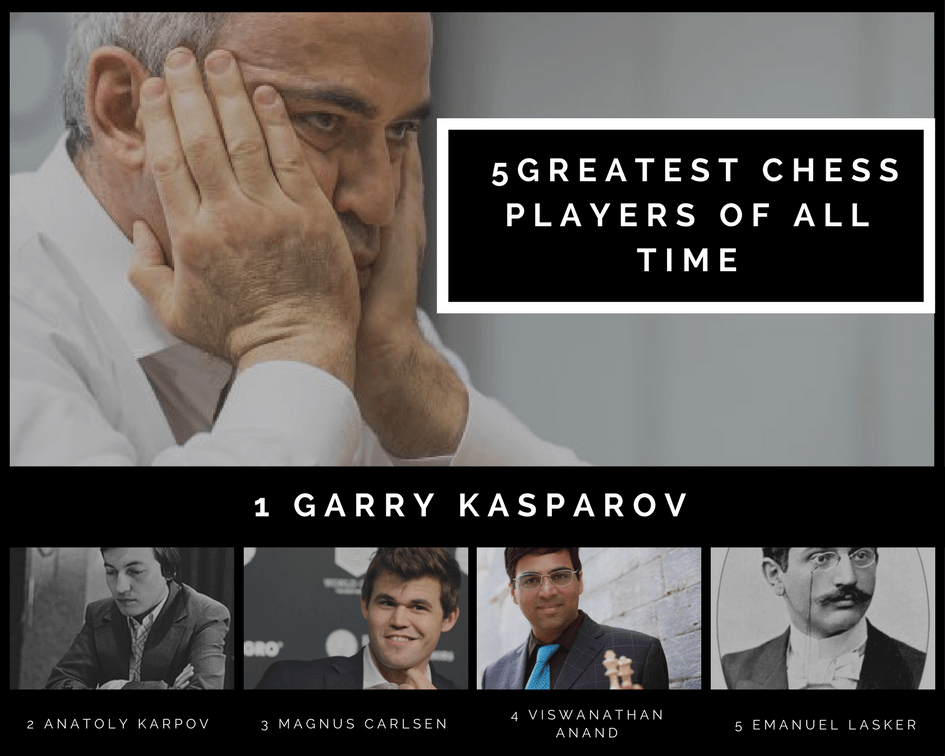
“All animals are equal, but some animals are more equal than others” is a quote from “Animal Farm” not “1984”.
i am in full agreement with your views on Fischer. But whats amazing is that Carlsen, Anand and several others rate Fischer in their top 5 of all time. In fact, Anand rates Fischer ahead of Kasparov. What do u suppose is the reason for that?
Also, i remember reading that even Lasker avoided Capablanca for a long time. So i am not sure if he should be included.
I am surprised that Capa himself hasnt been included by you in the list instead of Lasker. Carlsen, Karpov, Kramnik, Anand, Petrosian, Botvinnik…so many players attribute some inspiration or another from Capablanca. I remember reading some Chessmetrics analysis that Capa was the most “Correct” Player ever, and made more best moves, and less blunders than any other champion. He also lost very few games. IN lieu of that, would you consider shifting Capa to the 5th RAnk?
Finally, would you consider making a list that Ranks all World Champions From Morphy/Stinetz to Carlsen..instead of just top 5?
Well, I don’t know why they do so. Do you have the sources to see what are their arguments?
True, Lasker did avoid Capablanca for a while. But despite that, man owned the World Chess for three decades.
Capa hasn’t won all that many tournaments. In the 1921-1927 period, he was overshadowed by Lasker and later by Alekhine.
Hmm, I might consider that, but it will take some time. Hope to do so one day!
Thank you for your insight and your comment!
Magnuson Carlson (the highest rated human who has ever lived) has said that he believes that Fischer at his peak was a little stronger than Kasparov. Longevity and tournament records are hardly an indicator of who would win a match between 2 players in their prime. Anderssen and Morphy demonstrated that. Lasker (whom I like very much) was extremely fortunate to win the final game of the match with Schlecter (who could have forced a draw and won the match), and never had to play Rubinstein for the title . Although Carlson puts out better ‘finished product’s than some of his predecessors, even Karpov thinks Fischer was stronger. ‘Strength’ must be measured not by bringing the person from the past forward, but by putting the ‘newer’ person in the past. This way you alleviate a person’s advantage of the day and age in which they live. da Vinci for example could never put out a better finished product than even a mediocre scientist of today, but if you put that current mediocre scientist in da Vinci’s day, with only what they had in’that’ day to work with, would he be as good?
The title of that article is not The Strongest Players of all Time, but The Greatest Players of all Time. What you are saying is correct, but of course Kasparov was The Greatest, because Fischer didnt passed the test of the time. He didnt prouved that he is better than Karpov, and of course at the age of 42 he would easly lose to young 22 Kasparov in 1984 (if that match would take place), no question about that. But speaking about greatness in chess you must consider achivements and world title defends (Fischer didnt even defended his title= he wasnt even udisputted WChamp).Kasparov at his peak (its difficult to say when it was) was a monster with 1000 eyes who sees everything and many of his opponents was affraid to play with him.
You are just playing stupid semantic games. Fischer isn’t the Greatest because you imposed an arbitrary restriction on what constitutes as ‘great.’
Hi Joseph,
I think all GOAT debates are subjective, no matter how much we want to avoid it 🙂
Why Anand said Fischer above Kasparov? maybe because he competed with Kasparov and he didnt wanted to admit that he is the best player of all time phuh thats obviousl. Do you imagine that Cristiano Ronaldo will name Messi as the best football player of all time ? no, actually Messi named few player who he thinks are the best today but excluded me and Ronaldo. Thats natural. But most top GMs like 20 of them said that the best of all time is Kasparov, and I think its obvious. Also I can see that Magnus is tired of that question on each world champion match from journalists because maybe he wants to surpas Kasparov and produce better legacy than him. Thats why for question: who is your favorited player from the past ? he answered (during press conference with Caruana) Myself 7 yers ago :D. He is also tired of that everybody are expecting the most wanted answer Fischer.
The reasoning is that they aren’t biased like you are the author. The author had to impose an arbitrary restriction in order to knock Fischer out of his ‘top 5.’ The irony of this is immense, considering he claims that Fischer’s ‘fame’ is due to subjectivity rather than objectivity.
Hi Joseph,
Please take into consideration I wrote this a while ago, where I was a bit more focused on being controversial. I wouldn’t necessarily sign everything I wrote in this article :).
I completelly agree with your opinion about Fischer and number 1 player of all time. If Fischer would be born in Soviet Russia and had achieved the same as an American he would be considered to be as strong as Tal. He was WChamp for some years he bring big impact to the chess world, but thats it. He was not better than dominators like Kasparov, Karpov or Carlsen.
According to Kasparov ‘Fischer’ was unquestionably the ‘greatest’ player of all time as he did more for chess than anyone, the only question remaining is who’s the ‘strongest’ player of all time. Magnus Carlsen answered that in 2013. One cannot claim longevity has little to do with it and then proceed to talk about Kasparov’s longevity. Top 10 lists are indeed subjective, but someone hardly has to be my favorite to be stronger or greater. My personal favorite is Mir Sultan Khan, but he is not usually considered in the same breathe with the strongest, and I fully understand that
Yeah, we should all appreciate the genius of Mir Sultan Khan, but we can’t put him in the GOAT debate, alas 🙂
Cheers
Vjeko
Pingback: Cheating in chess: A history - Chessentials
Pingback: Cheating in Chess: A history – Bruvschess
“Yes, many people will mention his phenomenal results in national championships (who doesn’t remember the legendary 11/11 in the 1963/1964 US Championship). But I think we all agree that the level of the competition in US Championships was considerably lower.”
The fact you had to write more about why Fischer isn’t in your top 5 is rather hilarious. But what is ridiculous is the above quote. The irony of your statement regarding “Fischer is only ‘up there’ due to subjectivity” is palpable, considering you inject massive subjectivity into your ‘reasoning,’ such as follies of comparing across generations (ratings don’t work this way, and comparing ‘strength of US Championships’ is a corollary of this), as well as your arbitrary imposition of ‘longevity.’
You clearly don’t like Fischer, and this has biased your reasoning. You provided a lot of excuses as to why he isn’t in your top 5. You could have written a legitimate top 5 that did not include Fischer, with valid reasons, but the ones you provided were, as I said, fallacious excuses, which only subtracts from the quality of this article (the rest of it was quite good).
To compare across generations, if you can even do that, is to be fair and not inject your incredible bias. The best way is to magically teleport current best players into the era of Fischer and have them learn and play on an even field with Fischer. Or we can teleport Fischer to the future, such that he learns and plays via the same methods of today’s best players. Such a thing is harder to envision, so it is better to stick with teleportations to the past.
Anyway, my reasoning for why you are wrong is that the world’s best chess players, even those of whom you have ranked in your top 5, have consistently ranked Fischer as among the best chess player of all time.
Their knowledge of chess is much, much deeper than mine, and, while this may seem like an appeal to authority, it really isn’t, because I am not making an appeal to their authority, but rather an appeal to their superior arguments. Their reasoning is based on the same substance and stuff that has allowed them to become amongst the best.
I am more interested in hearing your response to the very people that you have listed including Fischer as among the best; now THAT would be a very interesting reply and/or article.
PS Don’t take my comment the wrong way; I greatly enjoyed your article. As you stated in this very article, your opinions regarding Fischer were likely to ‘set some people off!’
Hi Joseph,
As I wrote below, I would have probably included Fischer in top 5 today. I agree all these lists are highly subjective. I don’t necessarily think my longevity argument was fallacious, but my self-righteousness about Fischer being American is not something I would necessarily sign today!
And I agree it is not possible to compare across generations competently.
With best regards
Vjekoslav Nemec